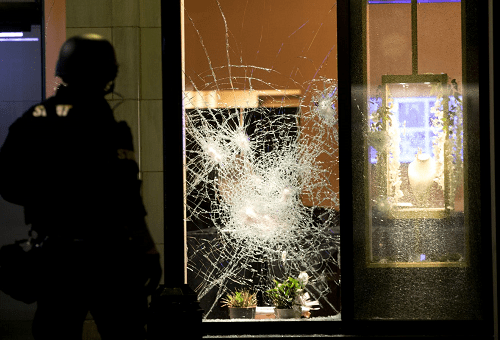
11.15.21 – Cincinnati.com – Sharon Coolidge Cincinnati Enquirer
Do you have a burglar alarm? If so, you might be owed money from the city of Cincinnati.
For years the city has been charging residents and businesses fees to register alarm systems and fees for false alarms, but the First District Court of Appeals nixed those fees and said anyone who’s paid it might be able to seek a refund.
The Nov. 10 decision, written by Judge Bob Winkler, could be a blow to the city’s budget because the fees have been collected for years. The exact amount was unclear Monday afternoon, but the plaintiffs’ attorneys say it could be as much as $3 million dating back to when the law was updated in 2014.
The ruling comes on the heels of the Ohio Supreme Court halting the city of Cincinnati’s collection of a billboard tax. In that ruling the court said the billboard tax violated the billboard operator’s First Amendment rights. The city enacted the tax on billboard advertising in 2018 to help close a $2.5 million budget gap.
The alarm fees were increased partly to help cover police costs of responding to false alarms.
“Instead of promoting the public health and welfare, the assessments, as currently written, may have a chilling effect in that it deters citizens from utilizing alarm systems to protect themselves, their homes, and their property,” wrote Judge Marilyn Zayas in a concurring decision.
The plaintiff’s attorney, Maurice Thompson, of the Columbus-based 1851 Law Center, was blunter: “It’s just a giant scam to make people pay for police, which they already pay for, to defend their homes. The biggest take-a-way …is that you can’t tax residents for defending their own home or calling police to defend their homes. That’s why police exist.”
The First District Court of Appeals sent the case back to the trial court to issue an order stopping the city from collecting the fees and to determine the amount of damages, which would be what people have paid.
City leaders will appeal the decision to the Ohio Supreme Court, but a city spokeswoman did immediately know how much had been collected.
“The city does not agree with the alarm fee decision,” said Holly Stutz Smith, a city of Cincinnati spokeswoman. “In the coming days we will provide additional information regarding how the decision impacts public safety and taxpayers.”
Thompson said in high years as much as $400,000 has been collected.
The city first authorized charging for excessive false alarms in 1988, when there was a rise in the use of security systems; over time the city added new fees.
In 2003, the city began requiring that security systems be registered with the police department and added an annual registration fee of $250 for businesses that sell, install, service or monitor alarm systems.
And then in 2014, in an effort to reduce and cover costs associated with false alarms, more changes were instated: Your stories live here.Fuel your hometown passion and plug into the stories that define it.Create Account
- Security system owners were required every other year to pay an administration fee – $50 for residential alarm systems and $100 for all non-residential alarm systems.
- • Unregistered alarm businesses were charged a $1,000 fee for requesting an alarm dispatch.
- • On a third false alarm, alarm users would be charged a $50 fee. For each additional false alarm, the fee escalated. A 10th false alarm costs $500. After the 10th false alarm, the fee increases to $800 for each false alarm.
- For an unregistered alarm system the fee for the first false alarm is $100. After that, calls to an unregistered alarm system are charged $800.
Enough was enough, said two Cincinnati residents, Andrew White and Vena Jones-Cox and three private companies, Cincinnati Property Management Inc., Tashaz LLC and Proffitt Real Estate Services.
They sued the city in 2018 alleging the fees were actually a tax and therefore unconstitutional. Hamilton County Common Pleas Court Judge Leslie Ghiz, a former Cincinnati City Councilwoman, upheld the fees in a one-sentence decision. The plaintiffs appealed and on Nov. 10 the First District Court of Appeals overturned her ruling and sided with them.
The decision was made public Monday.
The plaintiffs were represented by the 1851 Law Center, a non-profit firm focused on constitutional rights of Ohioans cases.
The First District Court of Appeals ruled the costs were akin to a tax because they go directly to the general fund, instead of a special fund that benefits those paying it.
The city of Cincinnati has a False Alarm Reduction Unit, whose website says there are roughly 24,000 false alarms annually, which cost taxpayers over $500,000 a year. A 2015 Enquirer story said that since 2011, the police department had issued $3.8 million in false alarm fees.
“It seems the mentality in Cincinnati is that, ‘We’re going to fleece people for doing everyday tasks,'” Thompson said. “It’s good they’ve been caught a few times.”
